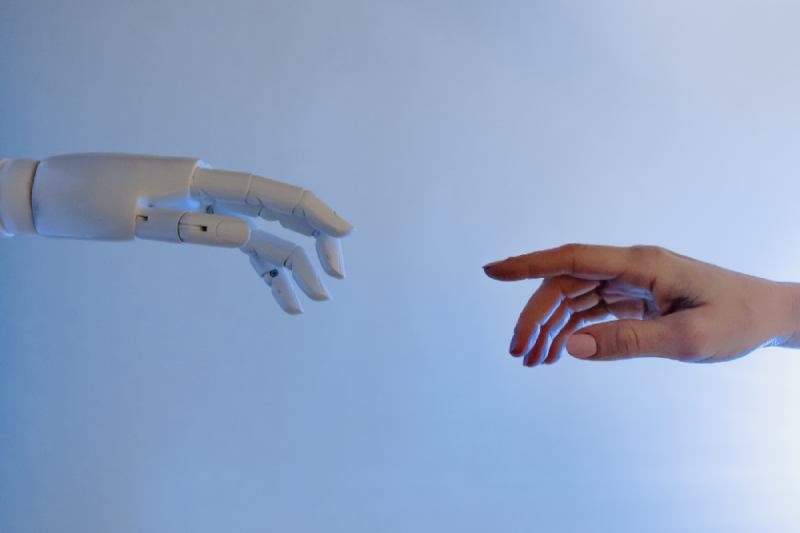
Digital marketing is just one of the areas that artificial intelligence (AI) is transforming. AI is expected to become even more crucial in determining how digital marketing develops in the future as technology continues to advance. Artificial intelligence (AI) is quickly changing how organizations interact with their consumers and maximize their marketing strategies, from personalized customer experiences to data-driven decision-making. This article examines the potential applications of AI in digital marketing, outlining the main developments, advantages, and upcoming difficulties.
Digital marketing experts foresee a lot of future trends, but one that always remains relevant is personalization. Large volumes of data may be swiftly and readily analyzed by AI-powered algorithms to comprehend the unique tastes and behaviors of each customer. With the help of this important strategy, marketers may provide highly customized content, product recommendations, and targeted ads. AI will continue to hone these skills in the future, producing even more customized experiences that connect with customers more deeply.
Extensive data sets can be processed by AI and machine learning to extract insightful information about customers. Predictive analytics, which is powered by AI, can project future patterns and behaviors, giving marketers the ability to foresee and proactively meet client demands. More complex prediction algorithms will be able to provide more precise and useful information.
These technologies have already achieved major advancements in customer service and engagement. These tools will grow increasingly sophisticated and capable of managing intricate questions as AI technology develops. Future chatbots will communicate with users in a smooth, human-like manner, increasing customer happiness and boosting conversion rates.
Artificial Intelligence is transforming the production of content by automating processes like writing scripts for videos, social media updates, and blog entries. Relevant and interesting material can be produced by Natural Language Processing (NLP) algorithms. AI can also maximize visibility and reach by optimizing content for several platforms.
Programmatic advertising automates the real-time purchase and sale of advertising space with artificial intelligence. This results in more effective and efficient ad placements that precisely target the correct audience at the right moment. Programmatic advertising will get increasingly more accurate as AI technology develops, decreasing ad waste and raising return on investment (ROI).
AI-driven solutions for voice and visual search are revolutionizing online information discovery. While voice search permits inquiries with spoken instructions, visual search lets users easily search using images. As these technologies develop further, marketers will have more chances to maximize their content and connect with consumers by utilizing these cutting-edge search strategies.
AI frees up marketers to concentrate on strategic planning and innovative projects by automating time-consuming and repetitive operations. Decision-making and execution are accelerated as a result of this enhanced efficiency.
AI analyzes consumer data to provide experiences that are specifically catered to, making hyper-personalization possible. Sales are ultimately driven by this degree of customisation as well as consumer engagement and loyalty.
Artificial Intelligence (AI) gives marketers predictive analytics and insightful information that helps them make data-driven decisions. This enhances targeting, boosts ROI, and optimizes marketing techniques.
AI’s automation and efficiency improvements cut down on running expenses. Ad spending can be optimized, client acquisition expenses can be decreased, and overall marketing efficacy may be raised with AI-driven solutions.
AI-driven marketing programs are easily scalable to manage high data and interaction volumes. This crucial scalability is ideal for companies trying to grow in influence and market share.
Gathering and analyzing data is a major component of using AI in digital marketing. Privacy and security of data is becoming a major concern for customers who want to know how their information is used and safeguarded.
It may be expensive to integrate AI technology with current marketing systems and procedures. To effectively use AI, businesses of all sizes must invest in the appropriate infrastructure and training.
Marketers may find it difficult to keep up with the AI industry’s quick speed of innovation. Learning new things and adapting to changing times are necessary to stay current with technology and trends.
The application of AI brings up issues of responsibility, transparency, and bias. Marketers need to make sure AI-driven tactics follow moral principles and are impartial and open.
It seems sense that AI will have a bright future in digital marketing, as it has the power to completely change the way companies interact with their customers. AI technology will only become more important in digital marketing as it develops further, spurring innovation and sector expansion.
Instagram creators now have a new tool to try if they're searching for a free… Read More
A free tool to help you boost local SEO and attract more clients is your… Read More
In today’s fast-paced digital world, online shopping has become more than just a convenience, it's… Read More
In today’s hyper-digital environment, social media is more than a marketing channel—it’s a brand’s identity,… Read More
Todd Barrow is rapidly carving out his place in the country music spotlight. Born and… Read More
Bangalore, often dubbed the Silicon Valley of India, is a city that seamlessly blends technological… Read More